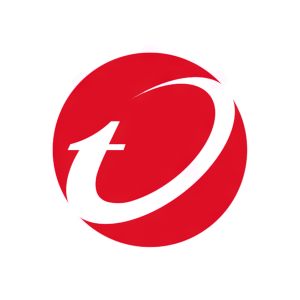4 Challenges of Cloud Migration for Healthcare Organizations
Trend Micro's recent survey highlights that 88% of global healthcare organizations (HCOs) accelerated cloud adoption due to the pandemic. Key motivations included remote work, cost savings, and improved IT agility. However, challenges such as skills shortages (43%), operational difficulties (34%), increased costs (43%), and limited confidence in security responsibilities (40%) were also identified. The company emphasizes that while cloud migration presents risks, effective security tools can enhance cloud benefits and mitigate potential issues, ensuring the safety of patient data.
- 88% of HCOs accelerated cloud adoption due to the pandemic, indicating strong growth in cloud infrastructure usage.
- Enhanced security tools could improve safety and address skills shortages in cloud migration.
- 43% cited skills shortages as a barrier to effective cloud security.
- Increased costs are reported by 43% of organizations after migrating to the cloud.
- Only 40% of HCOs are confident in their security responsibilities under the Shared Responsibility Model.
Insights
Analyzing...
LONDON, Feb. 4, 2021 /PRNewswire/ -- Trend Micro Incorporated (TYO: 4704; TSE: 4704), the global leader in cloud security, found that global healthcare organizations (HCOs) have accelerated their spending on cloud migration, but many may be over-estimating their ability to protect these environments.
Trend Micro commissioned Sapio Research to survey more than 2,500 IT decision makers in 28 countries across several industry sectors, including healthcare. The results show that
Rapid shifts to the cloud may leave organizations at higher risk of cyber threats. Here are four challenges HCOs reportedly faced when moving to cloud-based environments:
- Skills shortages:
43% revealed that skills gaps are a persistent barrier to migrating to cloud security solutions. - Day-to-day operations: Setting and maintaining policies (
34% ), patching and vulnerability management (32% ), and misconfigurations (32% ) were challenges of protecting cloud workloads. - Increased costs:
43% have spent more on capital expenses and paying for contracted out services, while39% have spent more on operational and training costs since migrating. - Security responsibility: Just
40% are confident they secure their part of the Shared Responsibility Model.
While cloud migration isn't simple, it can be enabled and improved using the right security tools.
"Security is another aspect of building well, not a separate function. And security controls help teams build better in the cloud," said Mark Nunnikhoven, vice president of cloud research for Trend Micro. "Security can be an accelerator for building in the cloud. Using the right tools and understanding the platforms you're using is key to making that happen."
The healthcare sector has been on the frontline in the struggle against COVID-19, and digital transformation can make a positive impact on productivity and patient care during this time of critical need. However, it is essential that the broader attack surface of an expanded digital infrastructure is given due consideration.
With the right cloud-ready solutions in place, HCOs can maximize cloud benefits without putting mission-critical systems or patient data at risk. Such tools can also minimize skills challenges by spotting misconfigurations, automating patching and policy management, and integrating security into DevOps, across both cloud and on-premise environments.
About Trend Micro
Trend Micro, a global leader in cybersecurity, helps make the world safe for exchanging digital information. Leveraging over 30 years of security expertise, global threat research, and continuous innovation, Trend Micro enables resilience for businesses, governments, and consumers with connected solutions across cloud workloads, endpoints, email, IIoT, and networks. Our XGen™ security strategy powers our solutions with a cross-generational blend of threat-defense techniques that are optimized for key environments and leverage shared threat intelligence for better, faster protection. With over 6,700 employees in 65 countries, and the world's most advanced global threat research and intelligence, Trend Micro enables organizations to secure their connected world. www.trendmicro.com
![]() View original content to download multimedia:http://www.prnewswire.com/news-releases/4-challenges-of-cloud-migration-for-healthcare-organizations-301221982.html
View original content to download multimedia:http://www.prnewswire.com/news-releases/4-challenges-of-cloud-migration-for-healthcare-organizations-301221982.html
SOURCE Trend Micro Incorporated








